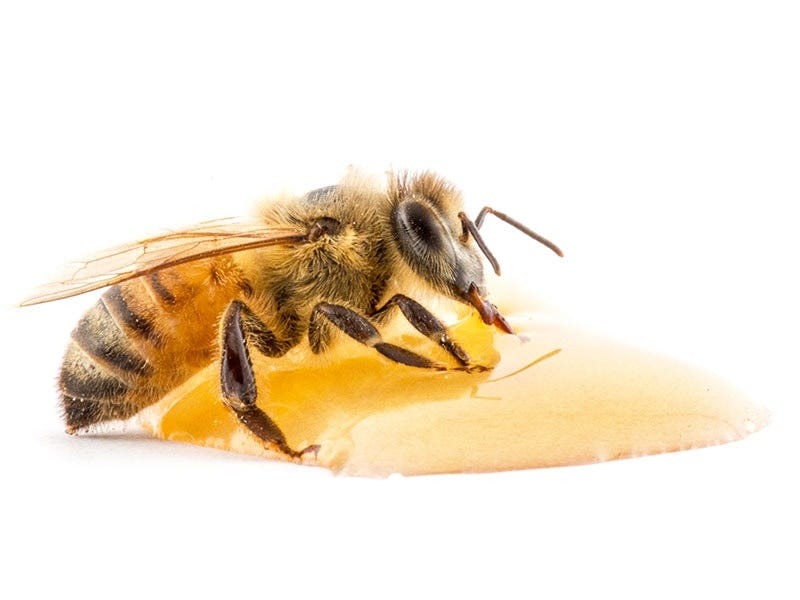The Plight of the Honey Bee

By Sharah Yaddaw, and Danielle Downey, and Thomas Hopkins
Keeping honey bees goes back over 9,000 years, and since then our ability to feed modern civilizations has been cultivated with honey bees pollinating our food as they gather theirs.

These unsung heroes work tirelessly gathering honey to survive winter, and crop pollination is the vital amenity we receive from their toil. Pollination in the US is valued at about $20 billion per year. This includes many nuts, fruits, berries, vegetables, and animal feeds- like alfalfa- which are required for meat and dairy production. Bees themselves- queens, packages and colonies for sale- are a valuable product only available with good beekeeping.
Just as we rely on bees to pollinate our food, most honey bees rely on beekeepers. As we feed more people with larger farms, the need for pollination services keeps increasing. There is no substitute for what commercial beekeepers provide, and it has never been harder to keep bees healthy. In 2017, over 40% of managed honey bees in the US died- this level of loss is unsustainable for many beekeepers.
Have more questions about beekeeping? Get started here.
What Kills Honey Bees?
Thanks to dedicated research, industry collaboration, and the advocacy of skilled beekeepers, it is no mystery what is killing our honey bees. The “Four P’s”: Parasites (like Varroa mites), pathogens, pesticides, and poor nutrition add up to put honey bees at risk.
Since deadly Varroa mites arrived in the late 1980s, beekeeping has changed, and management measures were taken as the world went on the offensive to combat this parasite and mitigate losses. With less available natural forage, due to urban development and monoculture crops, bees lack abundant good nutrition, which would be their best defense against most other stressors.
What is Project Apis m.?
Project Apis m. is named for the honey bee, Apis mellifera. Founded in 2006 by beekeepers and growers as a grassroots organization to address honey bee health and pollination security concerns, PAm has become the leading, trusted honey bee research nonprofit. Using donated funds, PAm has infused over $8 million into honey bee research projects in the US and Canada, with the potential to create beekeeping tools, discover solutions, and increase our understanding of honey bee health threats. PAm also supports forage programs, working with farmers and growers to plant pollinator forage on the landscape, right where it is needed most.
All of us can become bee advocates, reinforcing the link between bees and our own quality of life and quite literally sharing common ground to keep bees healthy. It is PAm's hope that the diverse voices of all beekeepers are united by reliable, research-based information that strengthens bee populations and makes us better beekeepers, able to share how everyone can help the beloved bees who pollinate our food!
If you’re not sure how to help, you can learn more at www.projectapism.org
*Mellivo Beekeeping is a proud sponsor of Project Apis m. (PAm.). Since our company’s founding, we have been dedicated to supplying quality products, and credible information to aid in our customer’s beekeeping endeavors. Mellivo has had the pleasure and opportunity to work with and supply some of the largest commercial beekeeping operations in the world, to a vast number of small backyard apiaries. Through our Mid-States retail partner, North 40 Outfitters, we supply a full line of beekeeping equipment; by purchasing our Mellivo products, you help us to raise funding and awareness towards supporting PAm’s mission.
For every purchase of Mellivo products from our retail partners, we give a 5% donation of those proceeds to Project Apis m. Thus, making you the Mellivo consumer a valued sponsor of PAm’s worthy cause. For more information about our Mellivo Beekeeping products, please visit your local North 40 Outfitters locations. For more information on how to connect with beekeepers in your area, go to Mellivo.com. Small wings carry big things, and the buzz is growing. We thank you for your valued support!
Sincerely, Thomas Hopkins, Mellivo Beekeeping

